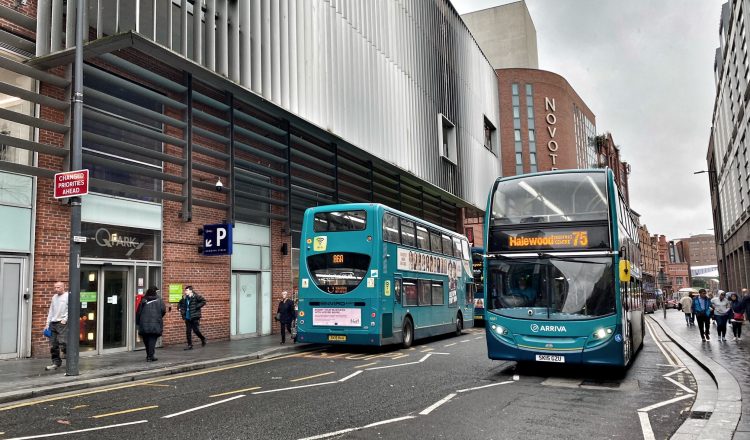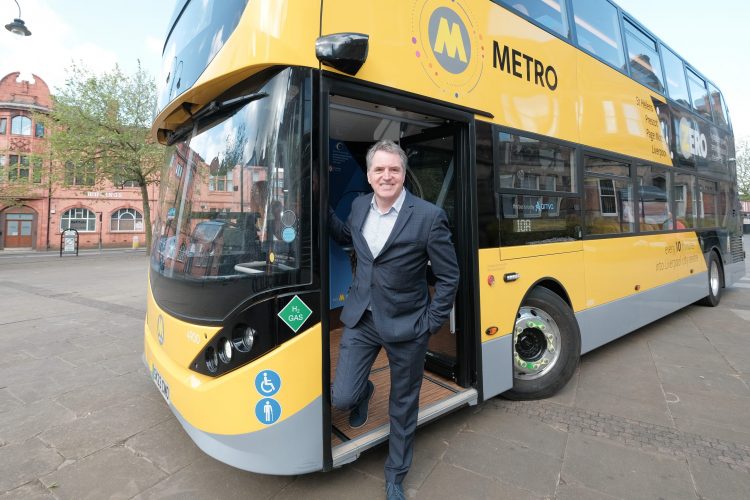Metro Mayor Steve Rotheram says he will invest £110m in the Liverpool city region bus network with plans including a fleet of electric vehicles and the return of bus lanes. Tony McDonough reports

Bus lanes will return to Liverpool for the first time since 2014 as part of a £110m investment into the city region’s bus network.
Metro Mayor Steve Rotheram, who is currently in the process of taking buses back under public control with his franchising plan, says the aim of this new investment is to “radically improve services”.
If agreed at next week’s Combined Authority meeting, the funding will be used to improve journey times and reliability, upgrade and purchase depot facilities and create a new bus interchange in St Helens town centre.
Money will also be used to purchase dozens of new zero-emission electric buses. This is in addition to the 58 electric double-deckers already secured by the region in April this year, via the ZEBRA (Zero Emission Bus Regional Area) fund.
And cash is being committed to reinstating dedicated bus lanes in Liverpool for the first time since they were removed in 2014. However there is no update on the fate of the city region’s hydrogen buses which are off the road due to a shortfall in hydrogen supplies.
Following a public consultation in which around 70% of people backed the plans, in 2023 Mayor Rotheram took the decision to franchise bus services in Liverpool city region.
With franchised services set to begin in St Helens in 2026 and introduced across the region by the end of 2027, the new system will allow greater local control of fares, timetables and routes.
On Friday the Liverpool Echo reported the Mayor’s plan to introduce a new bus rapid transit system in Liverpool will take a step foward with the arrival of a ‘Glider’ vehicle, currently used in Belfast, in the city in the next few weeks.
“Hundreds of thousands of people in our area rely on buses to get about every day – more than 80% of all public transport journeys in the region are taken by bus. But we need to put the public back at the heart of public transport,” said Mr Rotheram.
“Last year, I took control of our buses in the biggest shake up to the region’s transport in decades and the change will be transformational.
“For the first time in almost 40 years, we will have control over fares, tickets and routes and will be able to ensure that services are run in the best interests of passengers – not shareholders.
“We need to make our buses a greener, dependable and more affordable option. This investment is laying the groundwork for those improvements as franchised services begin to hit the roads in 2026.”

More than £32m from the proposed investment package will fund the building of a new bus and multimodal transport interchange in St Helens.
This project is part of a wider programme of works to regenerate the town centre and is being jointly delivered with St Helens Council.
READ MORE: Liverpool still behind the pace for foreign investment
Funding will also be targeted at some of the region’s busiest bus routes – including the 10A from Liverpool to St Helens, 53 from Liverpool to Crosby and 86 Liverpool to John Lennon Airport – with the aim of improving punctuality, reliability and journey times.
If approved, a total £108.1m will be drawn from the City Region Sustainable Transport Settlement (CRSTS), a £710m pot dedicated to supporting the delivery of transformational transport projects across Liverpool city region.

